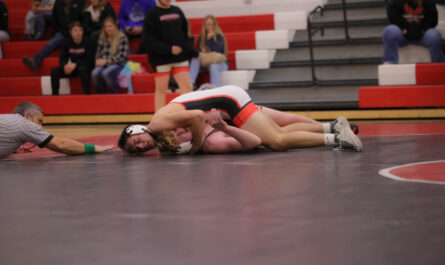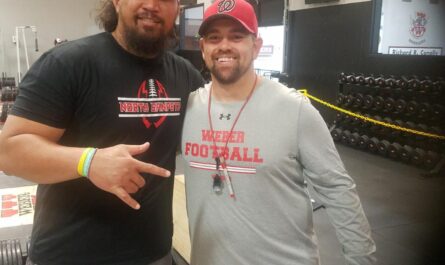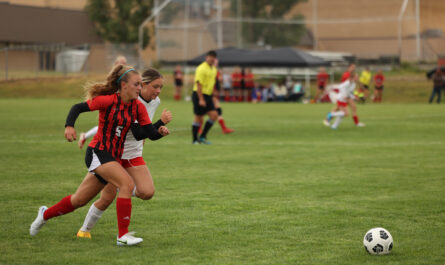As a highschool athlete, playing for a team is the most important part of their life. Injuries are a setback for those playing and can have an impact on them. Wrestling is one of those sports that when injured, can have a toll on those competing.
“As a high schooler all you want to do is compete in your sport so you don’t want to sit out due to an injury,” said senior wrestler Adrian Lemus.
Wrestling deals with many minor injuries such as cauliflower ear and sprained wrists or ankles. It also deals with more serious injuries such as separated shoulders and ACL tears.
“My sophomore year I cut too much weight and ended up screwing with my gallbladder which I got removed at the end of the season,” Lemus said.
Many wouldn’t think that cutting too much weight could cause an injury but it’s a dangerous injury that can have a huge impact on a wrestler.
“I’ve had plenty of my share of concussions and stuff throughout the season,” sophomore Kasey Curtis said.
Concussions can be fairly dangerous due to the fact that if not taken care of correctly they will take longer to heal, causing a wrestler to sit out longer than they intend.
As a team, wrestlers actually go through preconditioning to help them be safer from injuries during the season.
“We train them to try and prevent,” said wrestling coach Bryan Strain, “They wear braces for knees and head gear for their ears. We try to keep them as protected as possible.”
An injury can affect wrestlers physically as well as mentally.
“It might mess with you mentally because you won’t be as good as you would be if it healed good or anything,” sophomore Porter Taylor said.
You could go from being perfectly fine, to being mentally drained, to being physically drained as well.
“I think they for sure can [affect you mentally], ” Curtis said, “There’s been times when, especially with concussions, [they] are always there throughout practice and you can’t finish.”
One of the wrestlers on the team experienced this at region this year where he re-injured himself.
“He was wrestling a close match and he injured his knee. It definitely affected his ability to concentrate on what he was doing,” Strain said.
Not only is it hard during practice to stay mentally strong, but sitting out during a match is just as painful.
“It’s extremely difficult,” said Lemus, “Sitting out on a match is like watching part of my life go by without getting any input in it so when I sit out on the side of the match it’s hard for me to just see it go by.”
A lot of times these athletes will be harder on themselves trying to get better so they can get back to doing what they love.
“Some days [your injuries] drive you to do more just so you don’t get injured again,” Lemus said, “I know that’s a stupid answer because if you do more with an injury you get more injured, but it just drives you to do more so I guess that’s why a lot of athletes get reinjured because they use the mind set of, ‘oh if I work out more, then my injury will go away,” that’s the mentality that a lot of highschool athletes I believe have.”
Some wrestlers may go as far as hiding their injury so they can still compete.
“I’d just try and hide it so I don’t get taken out and still get to go through it unless it’s major,” Taylor said.
This can be dangerous. Hiding an injury can lead to the worsening of the injury. Although many wrestlers may know this, they wouldn’t give up the chance to compete in their sport.
“You just got to have the love for the sport,” said Curtis, “Enough to feel like nothing is ever going to stop you- not even just a little injury.”




